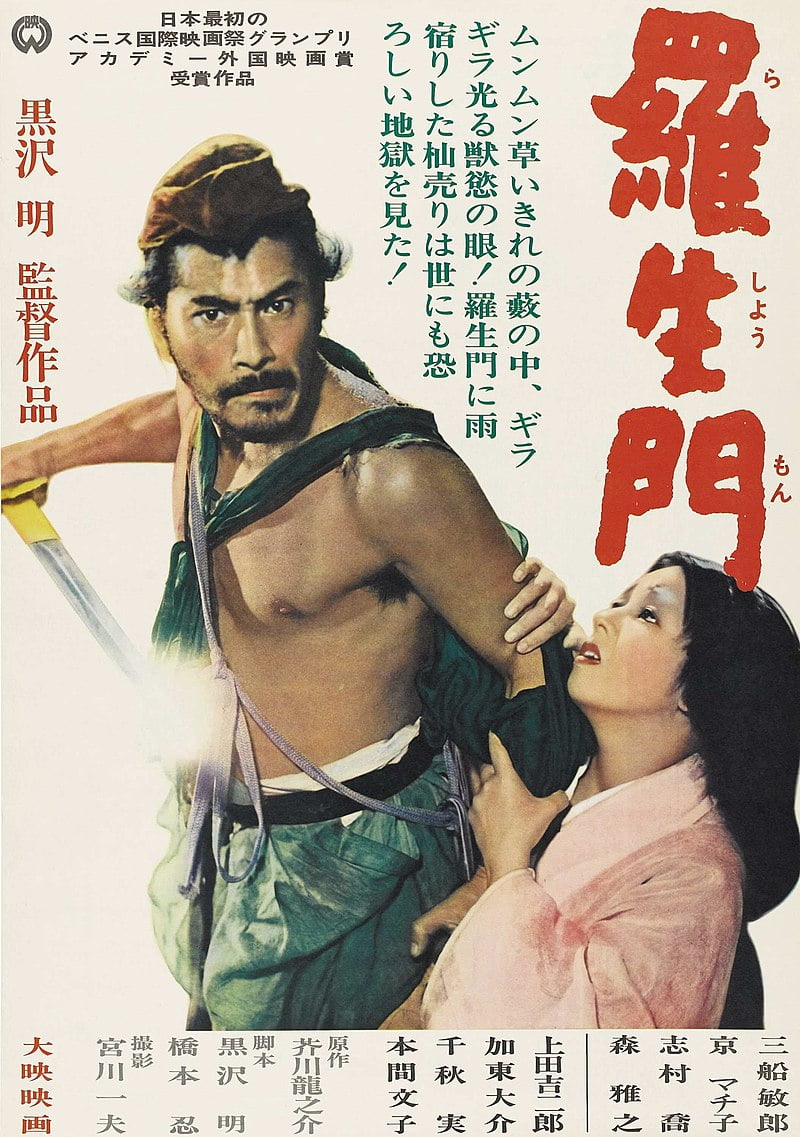Rashomon (Japanese: 羅生門, Hepburn: Rashōmon) is a 1950 Jidaigeki psychological thriller/crime film directed and written by Akira Kurosawa, working in close collaboration with cinematographer Kazuo Miyagawa.[2] Starring Toshiro Mifune, Machiko Kyō, Masayuki Mori, and Takashi Shimura as various people who describe how a samurai was murdered in a forest, the plot and characters are based upon Ryunosuke Akutagawa’s short story “In a Grove“, with the title and framing story being based on “Rashōmon“, another short story by Akutagawa. Every element is largely identical, from the murdered samurai speaking through a Shinto psychic to the bandit in the forest, the monk, the rape of the wife, and the dishonest retelling of the events in which everyone shows his or her ideal self by lying.[3]
The film is known for a plot device that involves various characters providing subjective, alternative and contradictory versions of the same incident. Rashomon was the first Japanese film to receive a significant international reception;[4][5] it won the Golden Lion at the Venice Film Festival in 1951, was given an Academy Honorary Award at the 24th Academy Awards in 1952, and is considered one of the greatest films ever made. The Rashomon effect is named after the film.
Source: Wikipedia

